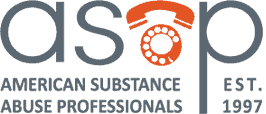By: ASAP
The impact of substance use on safety-sensitive industries is a serious concern, as impaired individuals pose significant risks to themselves, their colleagues, and the public. Safety-sensitive industries include those where an employee’s impairment could result in a high-risk situation, such as transportation, manufacturing, construction, and healthcare. Here are some key points to consider regarding the impairment crisis in safety-sensitive industries:
Increased Risk of Accidents:
Impaired individuals are more likely to cause accidents, injuries, and fatalities in safety-sensitive environments. Reaction times, decision-making abilities, and coordination are often compromised under the influence of substances, leading to a higher likelihood of workplace incidents.
Regulatory Compliance:
Many safety-sensitive industries are subject to strict regulations and compliance standards to ensure the safety of workers and the public. Non-compliance with drug and alcohol testing regulations can result in legal consequences and damage to an organization’s reputation.
Workplace Productivity:
Substance use can harm productivity, as impaired employees may have reduced focus, motivation, and job performance. Absenteeism and presenteeism (being present at work but not fully functioning) may increase, affecting overall efficiency.
Employee Well-being:
Substance use can contribute to physical and mental health issues, exacerbating stress and decreasing overall well-being. Organizations in safety-sensitive industries need to prioritize employee health and provide support for those struggling with substance use issues.
Legal and Financial Consequences:
Accidents caused by impaired employees can lead to legal liabilities, lawsuits, and financial losses for organizations. Employers may be held responsible for not implementing adequate testing programs and safety measures to prevent impairment-related incidents.
Drug and Alcohol Testing Programs:
Implementing robust drug and alcohol testing programs is crucial in safety-sensitive industries. Regular testing helps identify and address substance use issues among employees. Testing programs should be compliant with relevant regulations and should include pre-employment, random, post-accident, and reasonable suspicion testing.
Education and Prevention:
A critical part of keeping the workplace safe is preparing supervisors before a situation arises. Supervisory training on how to look for signs and symptoms of impairment, along with an understanding of company policy and procedures is essential to making a program successful for all. Educating employees on the risks and consequences of substance use is essential to supporting individuals and reaching the company goal of safety. Providing information and resources on how a company supports employees can encourage individuals to seek help and make informed decisions before substance use issues escalate.
Treatment and Support for Substance Use in the Workplace:
Creating a workplace culture that incorporates Self-Referral and Second Chance Programs, including employee assistance benefits, promotes openness and destigmatizes seeking help for substance use issues is crucial. Company prevention programs, such as a Self-Referral Program can encourage employees to ask for help before it is too late.
Organizations with programs or wanting to build programs will have support and resources for employees seeking treatment for substance use disorders. These company programs offer clinical evaluations by a qualified Substance Abuse Professional which will then recommend the right fit for that individual, education, counseling, rehabilitation programs, and support groups.
Addressing the impairment crisis in safety-sensitive industries requires a multifaceted approach that includes prevention, education, testing, and support. Organizations must prioritize the well-being and safety of their employees while also ensuring compliance with relevant regulations to maintain a safe working environment.


